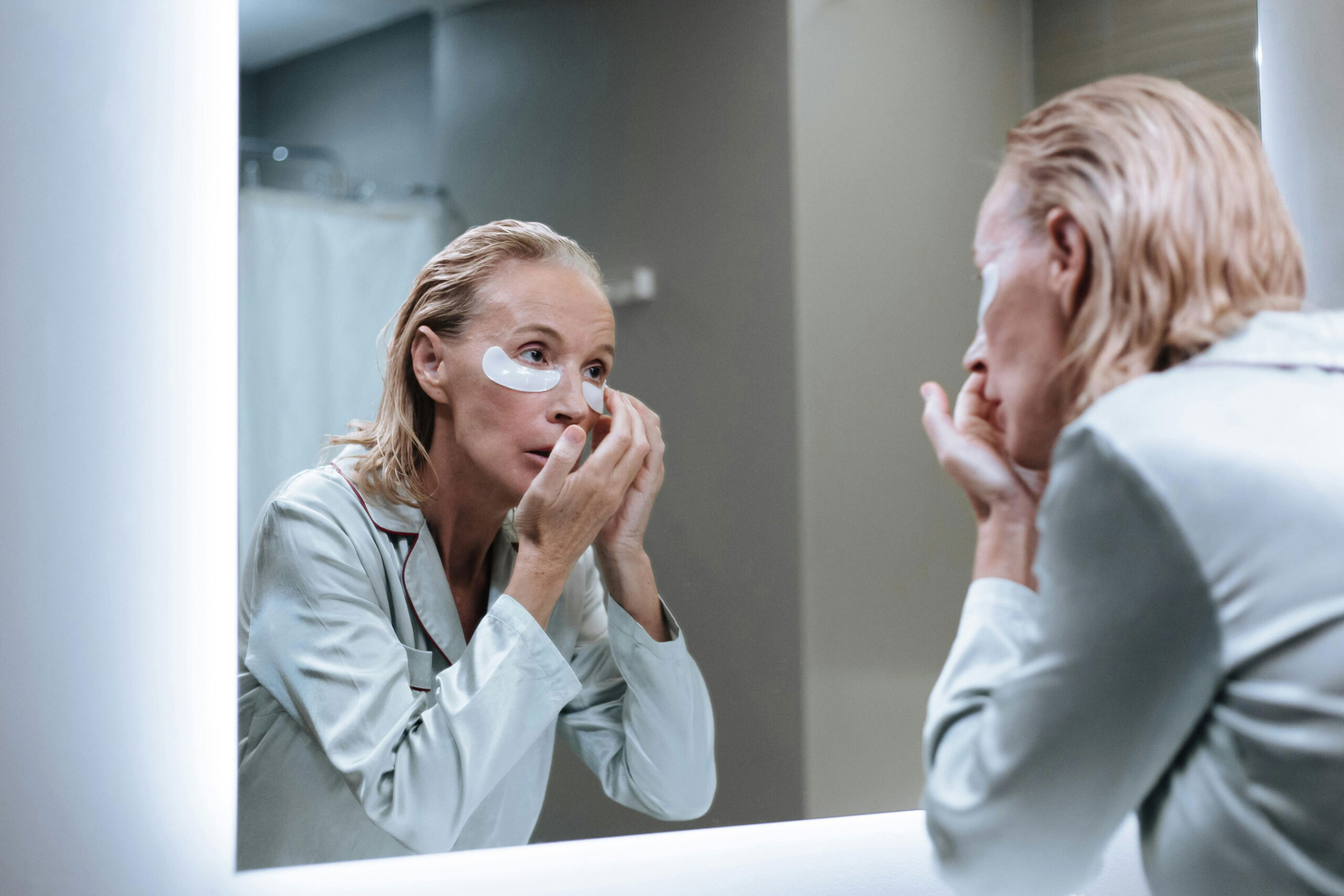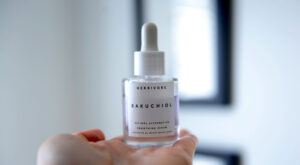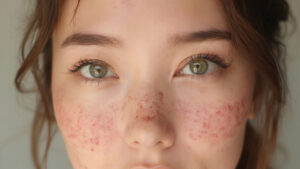Your skin’s needs evolve with age, and so should your skincare routine. Whether you’re combating acne in your 20s or addressing fine lines in your 40s, a tailored regimen can help maintain healthy, radiant skin. This guide outlines age-specific skincare routines and recommends effective products to support your skin’s changing requirements.
In Your 20s: Establishing a Solid Foundation
In your 20s, the focus is on prevention and establishing healthy habits.
Key Steps:
- Gentle Cleansing: Use a mild cleanser to remove impurities without stripping natural oils.
- Daily Moisturizing: Opt for a lightweight, hypoallergenic aloe vera moisturizer to hydrate and soothe the skin.
- Sun Protection: Apply a broad-spectrum SPF 30 or higher daily to prevent premature aging.
- Antioxidant Serum: Incorporate a green tea serum to combat redness and environmental stressors.
Recommended Products:
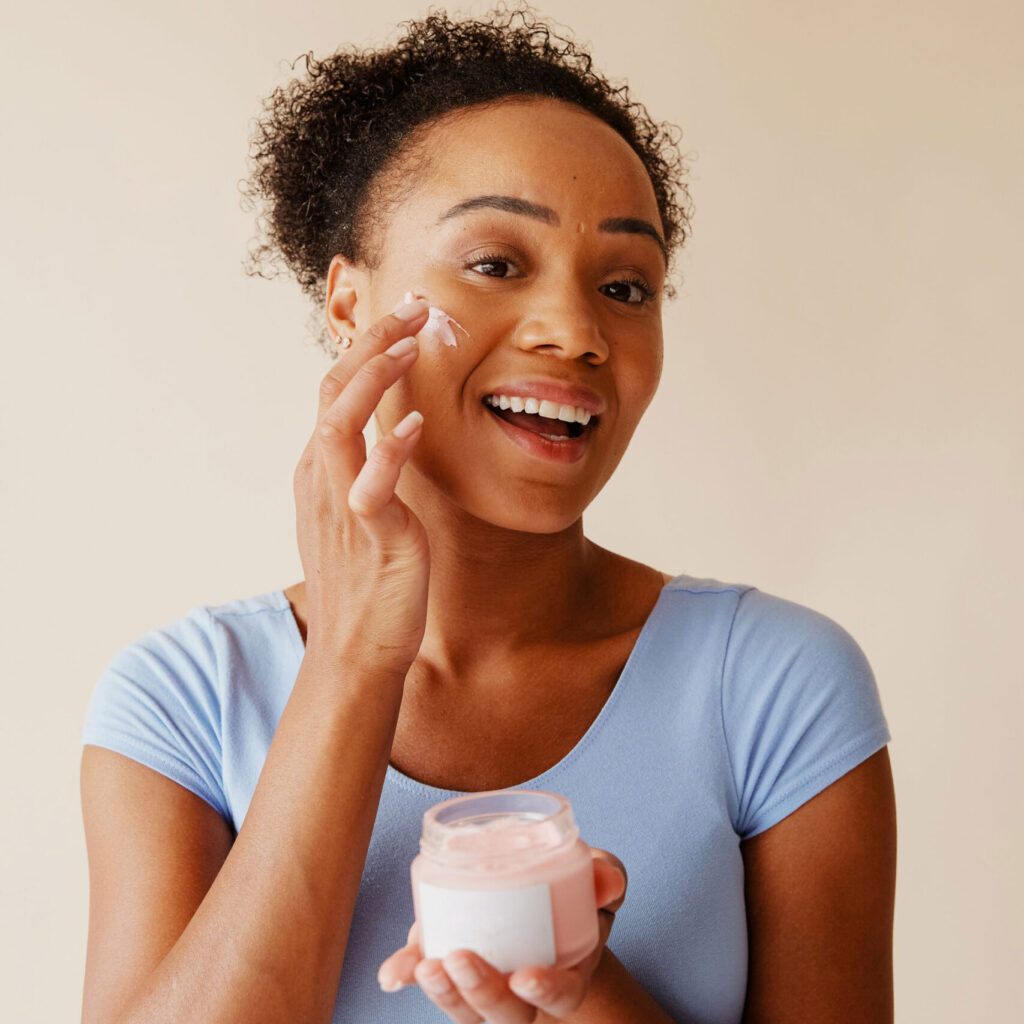
In Your 30s: Targeted Treatments for Early Signs of Aging
As collagen production begins to decline, your 30s are the time to introduce targeted treatments.
Key Steps:
- Retinol Introduction: Start using a fragrance-free retinol cream to promote cell turnover and reduce fine lines.
- Hydration Boost: Incorporate a hydrating face mask weekly to maintain moisture levels.
- Toning: Use an alcohol-free hazel toner suitable for combination skin to balance and refine pores.
Recommended Products:
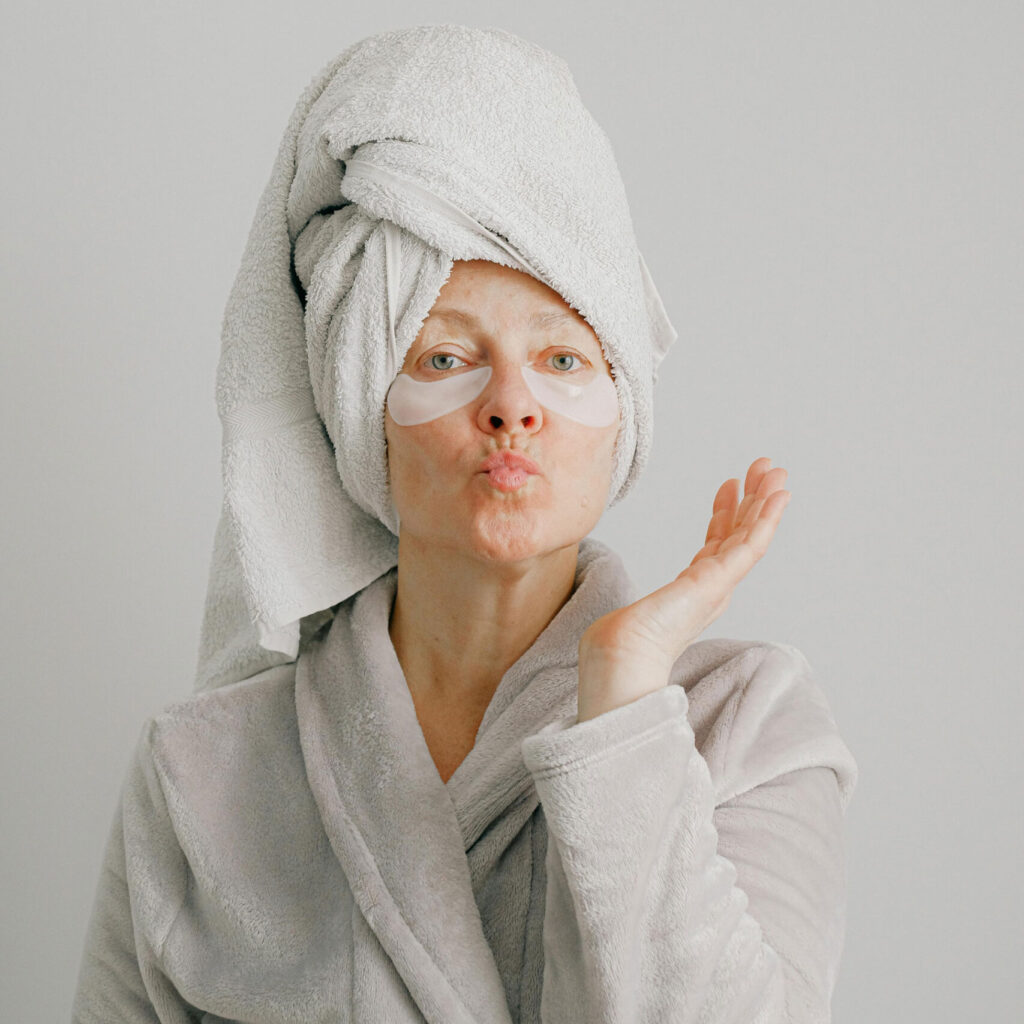
In Your 40s: Addressing Deeper Lines and Hyperpigmentation
In your 40s, skin may experience increased dryness and uneven tone.
Key Steps:
- Intensive Moisturizing: Choose a moisturizer rich in hyaluronic acid and ceramides to restore hydration.
- Brightening Treatments: Apply a cruelty-free vitamin E oil to diminish dark spots and enhance radiance.
- Exfoliation: Incorporate gentle exfoliants to promote cell renewal and improve texture.
Recommended Products:
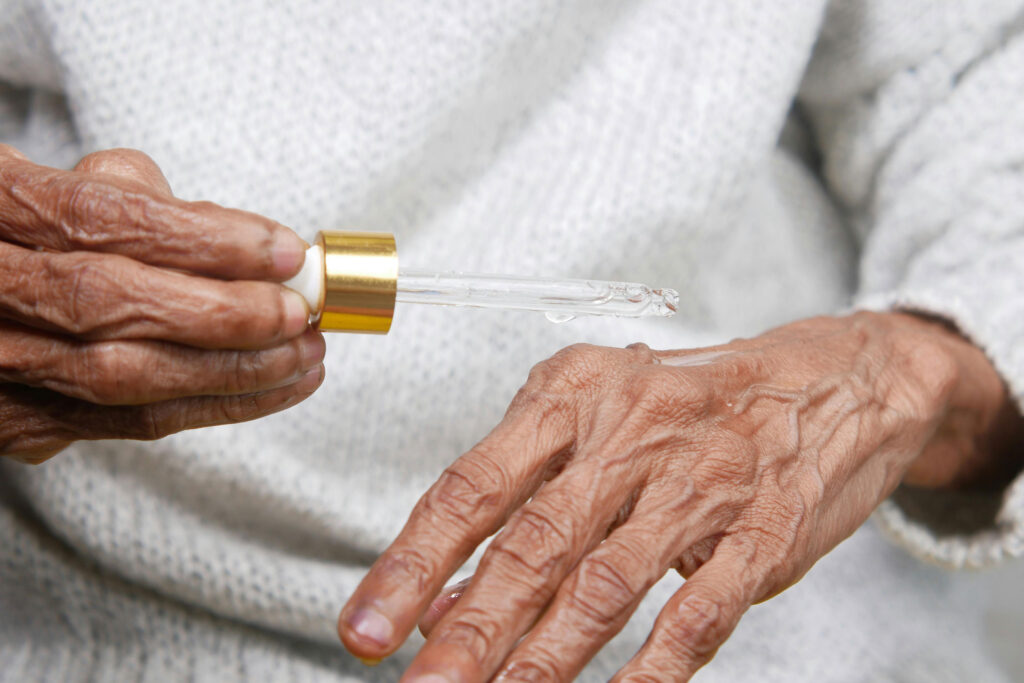
50s and Beyond: Emphasizing Repair and Deep Hydration
Mature skin requires products that support repair and provide deep hydration.
Key Steps:
- Rich Moisturizers: Use emollient-rich creams to combat dryness and improve elasticity.
- Soothing Balms: Apply handcrafted lavender balm to alleviate eczema and soothe sensitive areas.
- Targeted Treatments: Focus on products that address specific concerns like age spots and loss of firmness.
Recommended Products:
Frequently Asked Questions
What is the best skincare routine for your 20s?
In your 20s, focus on a gentle cleanser, a lightweight hypoallergenic aloe vera moisturizer, daily SPF, and a green tea serum to reduce redness.
How does your skincare routine change in your 30s?
Your 30s are the time to introduce fragrance-free retinol creams, alcohol-free toners for combination skin, and weekly hydrating face masks to prevent early aging.
What are essential skincare steps for your 40s?
Focus on deep hydration, retinol, cruelty-free vitamin E oil for dark spots, and products that boost collagen production and smooth fine lines.
What are the best skincare ingredients for aging skin?
Retinol, hyaluronic acid, vitamin C, ceramides, and peptides help reduce wrinkles, firm skin, and even out tone.
Is retinol safe for all ages and skin types?
Retinol is safe if used gradually and paired with a moisturizer. Sensitive skin types should use fragrance-free options.
What is the best toner for combination skin or acne scars?
An alcohol-free witch hazel toner balances oil without over-drying and may help with mild acne scars and redness.
What products help reduce dark spots and hyperpigmentation?
Cruelty-free vitamin E oil, retinoids, and niacinamide can all help fade dark spots and support even skin tone.
Can natural remedies help with dark circles?
Yes. Remedies like cold green tea bags, almond oil, or caffeine eye creams may reduce puffiness and discoloration.
What’s the best skincare routine for women over 50?
Use rich moisturizers, retinol alternatives, and soothing ingredients like lavender balm for eczema-prone or thinning skin.
How often should I change my skincare routine with age?
Evaluate your skin every 5–10 years and adapt your routine as hormonal, environmental, and skin structure changes occur.
The content provided in this blog is for informational and educational purposes only. All product recommendations and skincare suggestions are intended to serve as general guidance and should not be considered a substitute for professional advice. Individual skin types and conditions vary, so please use discretion when incorporating new products or routines. We strongly recommend consulting with a licensed dermatologist or qualified healthcare professional before beginning any new skincare treatments, especially if you have sensitive skin, pre-existing conditions, or are currently using prescribed medications.
Note: All product links are for informational purposes and do not constitute endorsements. Always perform a patch test before introducing new products into your routine.

